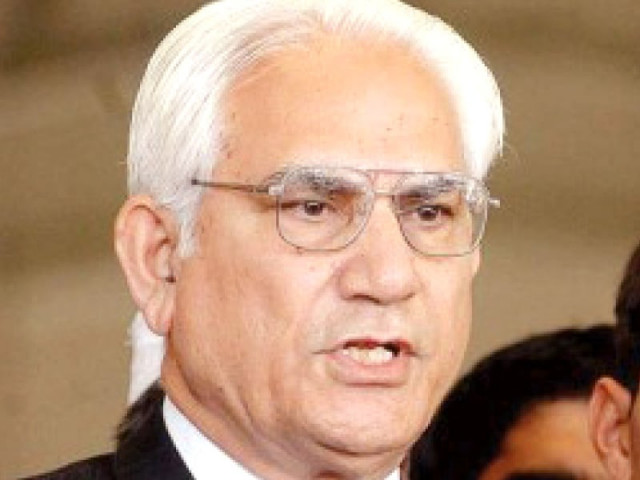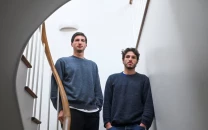Far-reaching consequences: AG says would not advise govt to try Musharraf for treason
Top prosecutor says putting former dictator to trial would bring caretaker government’s impartiality into question.

File photo of Ahmed Raza Kasuri. PHOTO: FILE
Attorney General of Pakistan Irfan Qadir on Thursday informed the Supreme Court (SC) that he would not advise the federal government to frame treason charges against former president Pervez Musharraf under Article 6 of the Constitution and others as abettors or conspirators.
“I will try to avoid an opinion on taking any action against those who took unconstitutional steps. I would say no one should be tried, not even judges,” Irfan Qadir said.
The attorney general (AG) was replying to a question by Justice Khilji Arif Hussain that what was his opinion about the actions of October 1999 and November 2007.
A three-judge bench headed by Justice Jawwad S Khawaja is hearing a set of petitions seeking treason trial of Musharraf for imposing state of emergency and holding the Constitution in abeyance on November 3 2007.
Qadir called the imposition of martial law in 1999 and the state of emergency in 2007 by Musharraf unconstitutional, illegal and unlawful but insisted he would never advise for trial of those who took these actions, abetted or benefitted.
The AG said the SC may not get involved in the controversy of trying Musharraf because it will question its independence and bring the court into ridicule.
“The Constitution and law has not left the matter of treason trial for the courts and it is only the federal government that can initiate the proceedings,” the Advocate General said adding the SC was not empowered under the Constitution to initiate such proceedings.
The top prosecutor of the country giving the stance of the caretaker government on trying Musharraf for treason said it was not the mandate of the interim setup and it would not take any decision that could question its impartiality.
“Any decision about initiation of the treason trial (against Pervez Musharraf) will have far reaching political ramifications as it in either way would have an effect on the political parties and other institutions,” the AG said.
Musharraf’s lawyer prayed to the court to dismiss these petitions as the petitioners had no standing and the matter in question was not of public interest.
Judges may not hear their own case
Earlier the former president in his written response once again raised objections over the constitution of the bench hearing the petitions.
Musharraf’s counsel, Ahmed Raza Khan Kasuri said the judges deposed during the state of emergency imposed by his client may not hear the case. “No man can be judge in his own case under the principle of natural justice,” said Kasuri in his written arguments on behalf of Musharraf.
“All the present judges of this court and also many judges of the high courts are direct affectees of the November 3, 2007 emergency and the PCO,” he said adding that being victims of the action their judgement could not be deemed impartial.
Published in The Express Tribune, May 10th, 2013.



















COMMENTS
Comments are moderated and generally will be posted if they are on-topic and not abusive.
For more information, please see our Comments FAQ